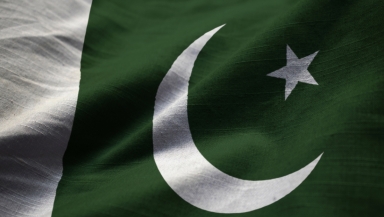
A new report by Human Rights Watch (HRW) has raised alarm over the widespread abuse of Pakistan’s blasphemy laws, accusing powerful individuals of using them as a tool for blackmail, forced evictions, and personal enrichment, especially against religious minorities.
Titled, ‘A Conspiracy to Grab the Land: Exploiting Pakistan’s Blasphemy Laws for Blackmail and Profit’, the 29-page report details the allegations of blasphemy - often levelled without evidence and due process — have become a tactic to displace marginalised communities, particularly religious minorities, from their homes and businesses.
HRW says the accusations are frequently followed by violent mob attacks, which are rarely investigated or prosecuted by authorities.
“Failure to prosecute those responsible for incitement and attacks in the past has emboldened those who use these laws to extort and blackmail in the name of religion,” said HRW’s associate Asia director, Patricia Gossman.
“The Pakistani government should urgently reform its blasphemy laws to prevent them from being weaponised to blackmail rivals, settle personal scores, and attack marginalised communities.”
Though legally classified as a capital offence, Pakistan’s blasphemy laws have never led to state executions. Still, the mere accusation can result in deadly mob violence.
Among the most disturbing trends documented is the use of blasphemy allegations as leverage in land disputes.
Many minority groups in Pakistan live in informal housing, lacking legal titles. This makes them especially vulnerable when forced to flee under threat of violence.
HRW’s report includes testimonies from individuals targeted under the law, along with interviews with lawyers, judges, police, and activists from several Pakistani cities, including Lahore, Kasur, and Islamabad.
A 52-year-old Christian beautician in Lahore described how her former employer threatened her after she left to start her own salon in 2019.
Months later, a mob led by a local cleric attacked her salon, accusing her of desecrating the Quran — a charge she vehemently denies. Her business was destroyed, and she was beaten.
“I respect all religions and didn’t even have a copy of the Bible at the salon. Why would I have a copy of the Quran? I would have to be completely mad and suicidal to even think about disrespecting it,” she said.
In another case, a 43-year-old Christian school principal faced a blasphemy threat from a religious group demanding PKR 200,000 (about £500 or US$800) in "atonement".
The group had accused a teacher at his school of making blasphemous comments — an accusation that quickly spiralled into a campaign of intimidation and extortion.
He shared: “It soon became clear to me that it wasn’t about any remark or ‘blasphemy’.
“Of course, they realised that since I was a Christian, just a murmur of blasphemy would mean that my school and possibly I too would be set on fire by a mob.
“No one would ask any questions. My religion made me additionally vulnerable.”
The case of Sawan Masih also offers a sobering example. The accusation of blasphemy against Masih in March 2013 triggered a violent mob of around 3,000, who ransacked Joseph Colony, a predominantly Christian neighbourhood in Badami Bagh, destroying over 100 homes. Masih was sentenced to death but eventually acquitted in 2020. Many residents believe the attack was orchestrated to seize the land.
The report says that while Christians and Ahmadis are frequently targeted, Pakistanis of all backgrounds are at risk and even Muslim clerics have faced accusations.
According to lawyer Mian Yasir, who has defended blasphemy cases for more than 10 years, most allegations are rooted in personal feuds or financial gain.
HRW is urging Pakistan to repeal or radically reform its blasphemy laws, release detainees held under questionable charges and prosecute those responsible for violence and incitement.
The organisation also called for safeguards to protect displaced people from having their property illegally seized.
Ms Gossman stated: “The Pakistan government’s indifference to the abuses under the blasphemy law and the violence it provokes is discriminatory and violates the rights to fundamental freedoms.
“The authorities’ failures to hold those responsible for violence against religious minorities to account only encourages extremists and reinforces fear and insecurity among all minorities.”
In the 2025 World Watch List compiled by Christian charity Open Doors, Pakistan was listed as the eighth most difficult place for Christians to live.













